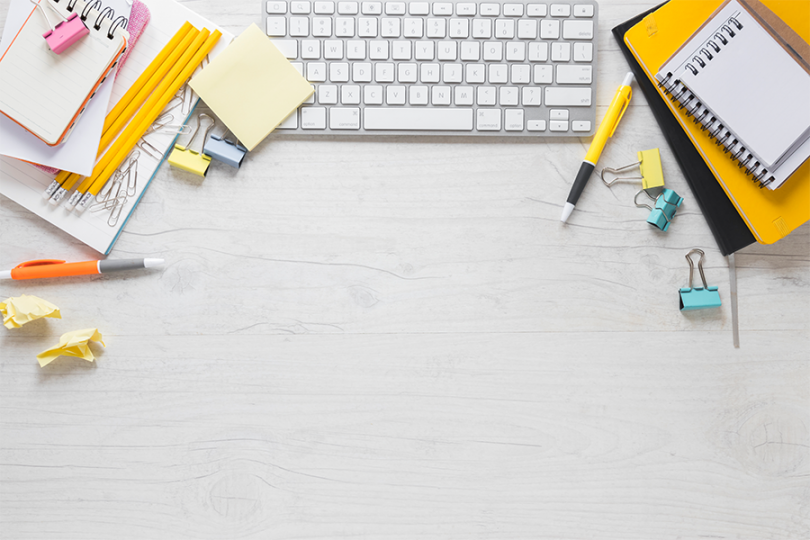Whether you work from home full-time, or spend one day a week out of the office, you will know that a well-designed work space really boosts your productivity. This blog post will make some seemingly obvious suggestions. However, as I am constantly reminded by my coaching clients, it is the ‘small things’ that we tend to forget about it.
So what do you need to consider when setting up your ideal home office?
You need to be able to focus. For most people this means having a separate and designated room to use as an office. But if space is tight, you might find that you’re restricted to a desk in the corner of your living room or bedroom. Whatever your situation, you should design your work area to minimise disruptions and distractions. You should ask yourself; “What can I see and hear when I’m sitting at my desk?” Try and set up your home office so that when you’re there, you’re only aware of work-related things. If you’ve set up your spare room as an office, that means not only closing the door while you’re at work, but also making sure that family members and housemates know that a closed door means “Do Not Disturb”. If your work space is a desk in the corner of your bedroom, try using bookshelves as room dividers. They will help to keep out distractions as well as provide plenty of storage.
You should be relaxed. Working from home means that you avoid a stressful commute in traffic or on a crowded bus and you don’t have to rent office space/co-share, or suffer the anonymity and instability of hotdesking. You can set up your work environment just the way you like it. You and you alone choose the lighting and the colour scheme and how many potted plants to have on your desk. You can look at artwork that you bought rather than someone else’s motivational poster. Most importantly, you can be physically comfortable. You control the heating or the air conditioning and you can make the decision to have a window open in summer. So when you’re designing your work space, remember that you should enjoy being there for at least 8 hours a day. Take time to find a chair that supports you and a desk that is the correct height. Think about your workflow. Do you naturally move things left-to-right or right-to-left as you deal with them? Set up your space so that it fits you and the way you work. If your environment makes you feel positive, you’ll be more productive.
Any documents and files should be secure. It’s annoying and potentially embarrassing if a housemate or a date decides that they can use your laptop or look through your things without asking permission. If they come across client details or confidential data then the situation is much, much worse. And while most burglars are more interested in your laptop and phone for their resale value than for any commercial advantage, having to tell clients and partners that you’ve compromised their data can do enormous damage to your reputation and actually set you up for a professional indemnity lawsuit. When you’re designing your home office, think about what a visitor or intruder will see through the window or door. What will catch their eye? A laptop left on the desk? A filing cabinet that has the key left in the lock? A cash box sitting on a shelf? As a rule, anything that’s valuable, portable or confidential should be locked away and out of sight when you’re not there. If you design your office space to be easily secured, you’ll prevent some major problems.
You need to look professional. If you’re Skyping a client, they’re unlikely to find it funny if they can see family or housemates wandering around in the background. And they don’t want to see your unmade bed either. When you’re video conferencing, make sure that you’ve got a neutral background. And if you’re considering having clients or colleagues coming to your home, no matter how informal the meeting, you need to think about the impression that you’re going to create. It’s best to have a room which is used solely as an office and can be accessed without walking through the rest of the house. You might be happy using your spare room as your work space, but do you really want to bring a business contact to your house and immediately invite them upstairs? Either create a space which gives a professional impression or find an alternative venue for meetings. Make sure that the rest of your house also gives off a professional image. You don’t need to decorate it like a sterile office, but make sure that it is neat and clean.
Working from home gives you the chance to be in control of your own work space. So create an area that will enable you to focus on work and minimise distractions, and make it somewhere you’re happy to spend your day. Make sure it’s secure, and remember that even when working from home you should appear professional at all times.







